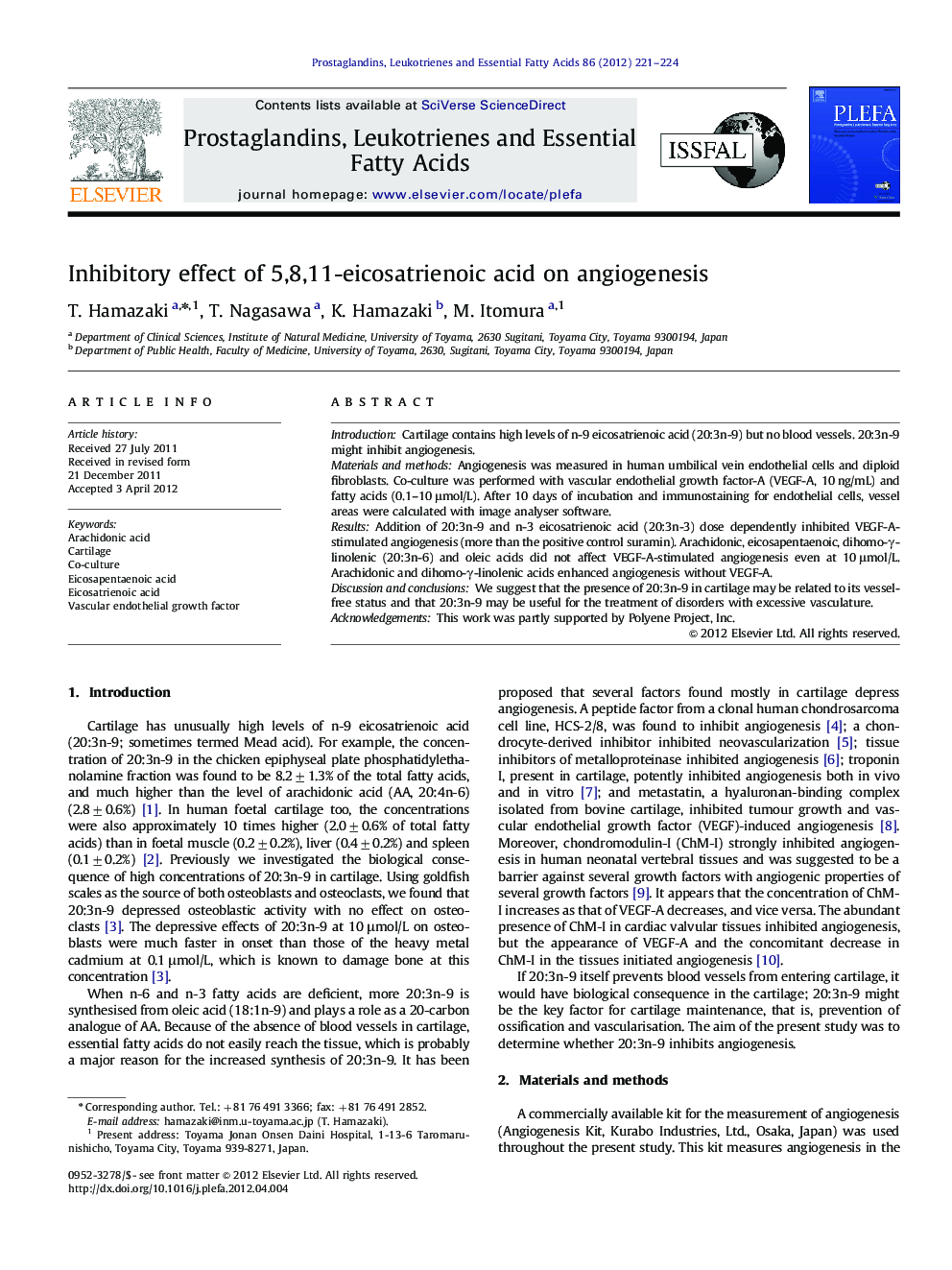| Article ID | Journal | Published Year | Pages | File Type |
|---|---|---|---|---|
| 2777696 | Prostaglandins, Leukotrienes and Essential Fatty Acids (PLEFA) | 2012 | 4 Pages |
IntroductionCartilage contains high levels of n-9 eicosatrienoic acid (20:3n-9) but no blood vessels. 20:3n-9 might inhibit angiogenesis.Materials and methodsAngiogenesis was measured in human umbilical vein endothelial cells and diploid fibroblasts. Co-culture was performed with vascular endothelial growth factor-A (VEGF-A, 10 ng/mL) and fatty acids (0.1–10 μmol/L). After 10 days of incubation and immunostaining for endothelial cells, vessel areas were calculated with image analyser software.ResultsAddition of 20:3n-9 and n-3 eicosatrienoic acid (20:3n-3) dose dependently inhibited VEGF-A-stimulated angiogenesis (more than the positive control suramin). Arachidonic, eicosapentaenoic, dihomo-γ-linolenic (20:3n-6) and oleic acids did not affect VEGF-A-stimulated angiogenesis even at 10 μmol/L. Arachidonic and dihomo-γ-linolenic acids enhanced angiogenesis without VEGF-A.Discussion and conclusionsWe suggest that the presence of 20:3n-9 in cartilage may be related to its vessel-free status and that 20:3n-9 may be useful for the treatment of disorders with excessive vasculature.AcknowledgementsThis work was partly supported by Polyene Project, Inc.
